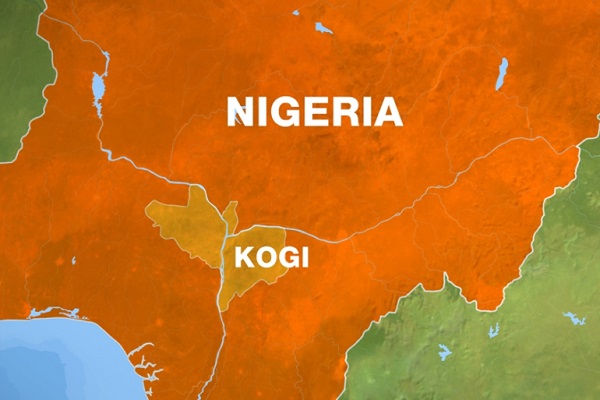By Chimezie Godfrey
The Institute for Governance and Leadership Studies in Africa (IGLSA) and Committee of Friends have convened a colloquium in honour of Justice Umar Abdullahi (rtd) at his 81 birthday.
The Colloquium which was convened on Saturday in Abuja with the theme,”The Judiciary and Governance in a democracy” was done to appreciate the selfless service of Justice Abdullahi to the nation, and also his exemplary and enviable contributions to the development of jurisprudence in the country.
This was disclosed in a statement signed by the Chief Operating Officer, Leadership Newspaper Group, Paul Agbo and the National Coordinator, Procurement Observation and Advocacy Initiative, Mohammed Attah.
They noted that the colloquium was convened to utilise the opportunity of the 81st Birthday of Justice Umaru Abdullahi to discuss the key issue of the Judiciary and governance in a democracy.
Other objectives of the colloquium according to them include to honour Justice Abdullahi as a legal luminary and an elder statesman who has made enormous contributions to jurisprudence and Nigeria judicial system.
They equally noted that part of it was to encourage the culture of appreciating Nigeria’s leaders, especially those who left an unblemished record of selfless service to the country, and to discuss contemporary issues of governance within the Country’s Judicial System.
The occasion had in attendance about 150 participants drawn from the Judiciary, Executive and legislative arm of Government, the Academia, Media and Civil Society Organizations, CSOs were in alternative.
They include the Chief Justice of the Federation and Justices of the Supreme Court, the President and Justices of the Court of Appeal, All serving and immediate past State Chief Judges, State Grand khadis, Deans of Faculties of Law in Nigerian Universities, The Leadership of the Nigerian Bar Association, Other individuals and organization within the Legal Profession.
In a keynote address, A.B. Mahmoud, SAN, former President of the Nigeria Bar Association highlighted issues on the theme, “The Judiciary and Governance in a Democracy”.
Other topics include “Governance Challenge and Prospect for Judiciary in Nigeria delivered by Prof. Sani M. Adam, Professor of Law, and Deputy Vice Chancellor, University of Abuja , Nigeria, “Judiciary in A Democracy: Lesson from the United Kingdom and the Commonwealth” by Prof. Rob Macusker, Charlessturt University, Austria as well as a paper on Ethics and the Rule of Law: Implications on the Judiciary by Prof. Adele Jinadu, retired professor of political science, University of Lagos, Nigeria.
The discussants noted that the judiciary is critical to Nigeria’s democracy and to the future of the nation and must be respected and protected.
They recognized the gaps in the silent nature of the judiciary and therefore suggested a judicial advocacy group (JAG ) to regularly discuss issues of concesus to the judicial arm of government.
They said,”There’s also a need to constitute a platform of former presiding offices in the judiciary to serve as interface between the civil society, executive and the legislative arm of the system as a means to promote state – civil society relations to promote good governance
“There is the need to expose our children to leadership and civic education in order to mould a better future through effective mentoring.
“That some of the emcuberances experienced in justice administration including delayed justice poor use of technology poor funding, corruption and other factors must be addressed adequately by borrowing a leaf from the private section governance structure in the judiciary to improve services to the Nigerian public
“That there need to separate judicial functions from administration of courts to be supported by adequate frame work.
“There is need to cut down on the time spend on delivery of justice on political matters especially electrons matters in order to allow proper governance for the people and therefore participants
“The judiciary derives its power and functions from the constitution which is the collective will of the people.”
They further pointed out that the decisions of the judiciary are for the best interest of the public, hence it obligation to the Nigerian people in ensuring peace and stability.
The Executive Secretary, Indent Consult Group, Ibe Ikwechegh in his paper presentation tittle,”. ,” noted that Justice that Justice Abdullahi as a judge of many decades was not at all ill informed of what are recondite judicial policies.
“But Abdullahi somehow believed that policies are nothing but a broad statement of goals and ideals and that without life to them, would remain worthless dogma.
“For instance we all know that justice must not only be done but must be manifestly and undeniably be seen to be done.
“We know the symbol of justice to be the blindfolded woman who is blind to the identities of those seeking justice before her.
“Every judge or judicial administrator knew these, but the real challenge is in converting these judicial creed into a plan of action,”he stated.
Ikwechegh disclosed that Justice Abdullahi always thought that in administration, there was always a need to look outside the confines of one’s administrative jurisdiction and see what developments were taking place in others spheres and how that may be adopted and adapted to aid functionality.
“And so it happened that around 2000, a year after he became the President of the Court of Appeal, he sought to digitize the Court of Appeal.
“The law reports which were the livewire of common law system of courts were converted for electronic access for the judicial officers,” he stated.
The Executive Secretary, also noted that Abdullahi’s judicial approach in criminal cases even on the appeals was to place the entire burden on the prosecution to prove the guilt of an accused person and to resolve any doubt, however subtle, in favour of the accused person.
According to him, these judicial attitudes which characterized him are evinced in many of the decisions he gave on appeal.
“It became his standard of justice, the standard which he had advocated even as a state counsel.
“We see in this brief synopsis, Justice Umaru Abdullahi’s normative governance model that helped him decide to which degree other stake holders should participate in the decision-making process,” Ikwechegh stressed.
Ikwechegh added,”He was a kind of model in liberal interpretation of laws. And in criminal law, he maintained a philosophy that insists on the presumption of innocence of an accused person and letting him take the benefit of any doubt, however frail and where retribution was inevitable, he was temperate.
“He has also had opportunity to demonstrate the benefits of friendly and comfortable environment as bedrock for productivity even in the Judiciary.
“In all other of his judicial conducts, his courage and fearlessness would remain a primer for a society willing to offer the best good to its citizens.”
Follow Us On WhatsApp




